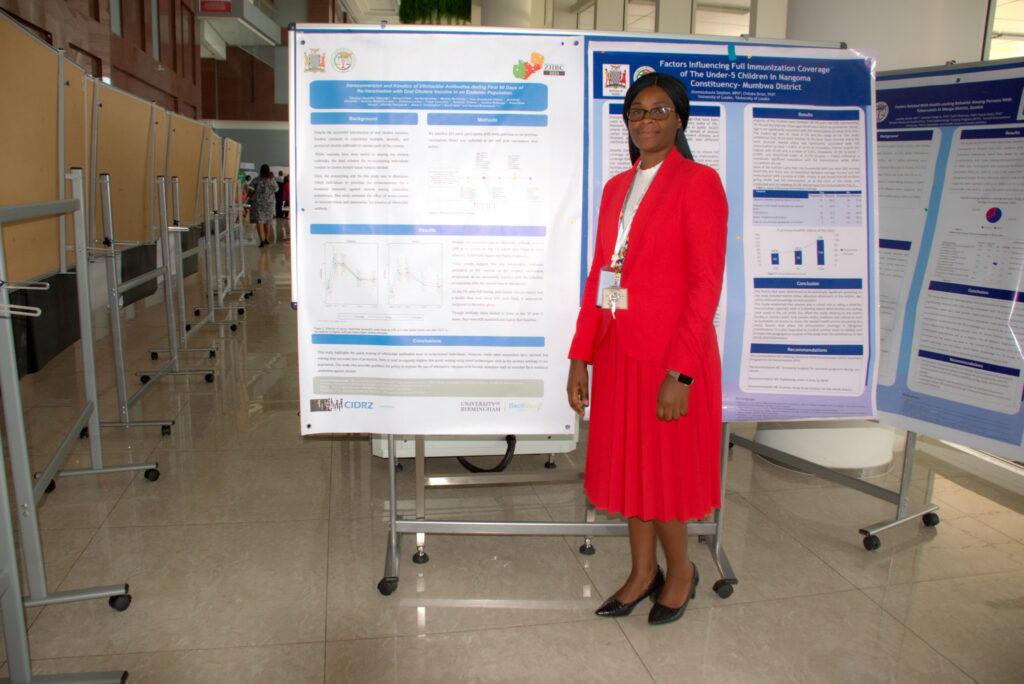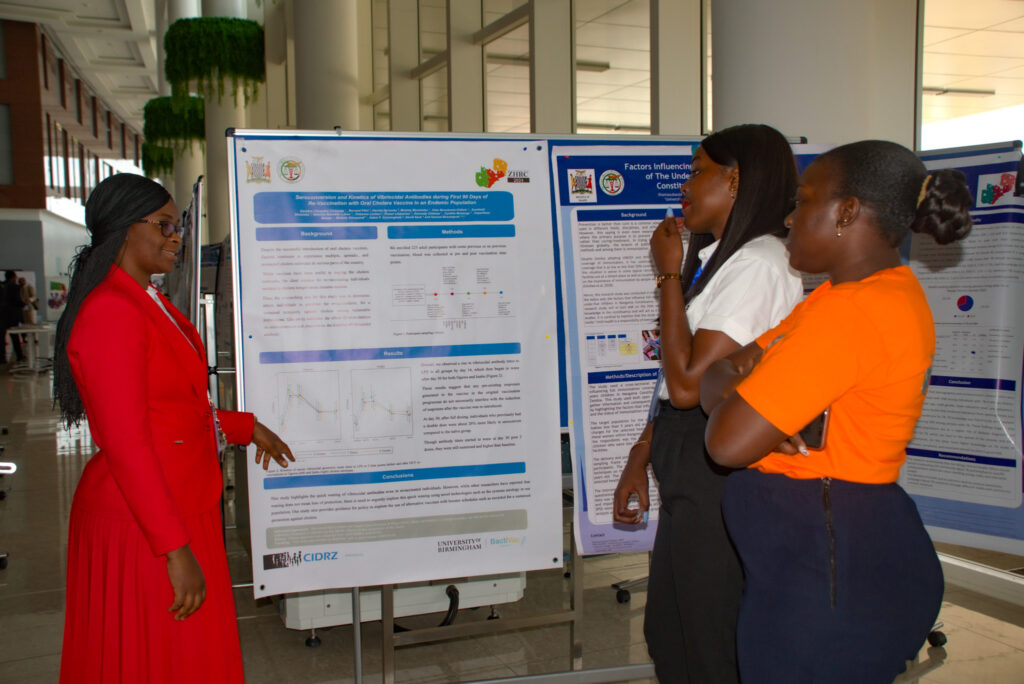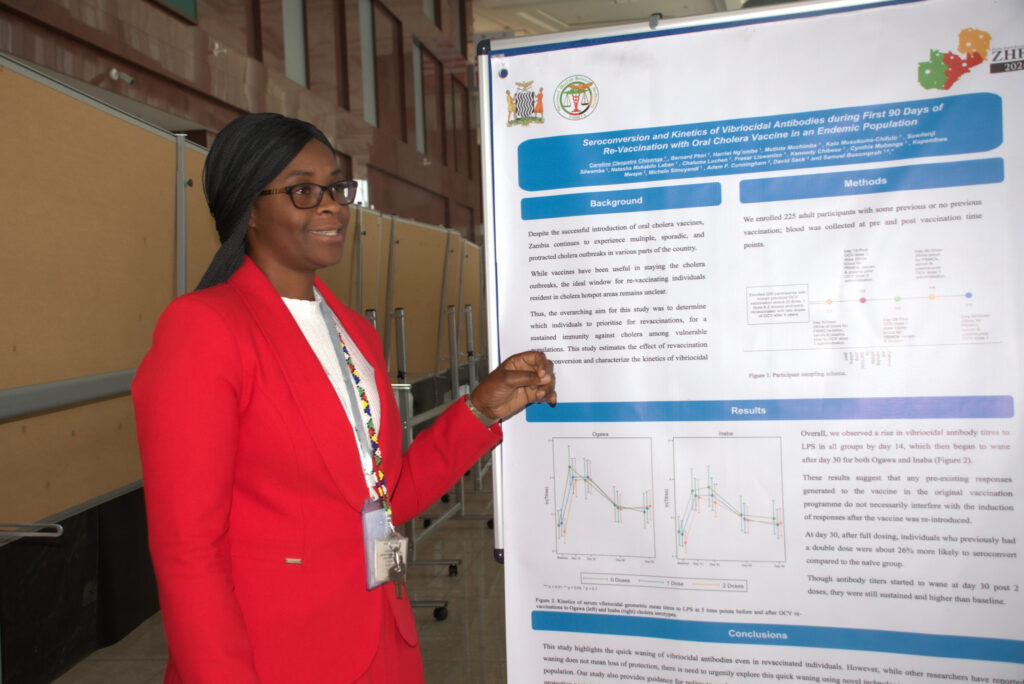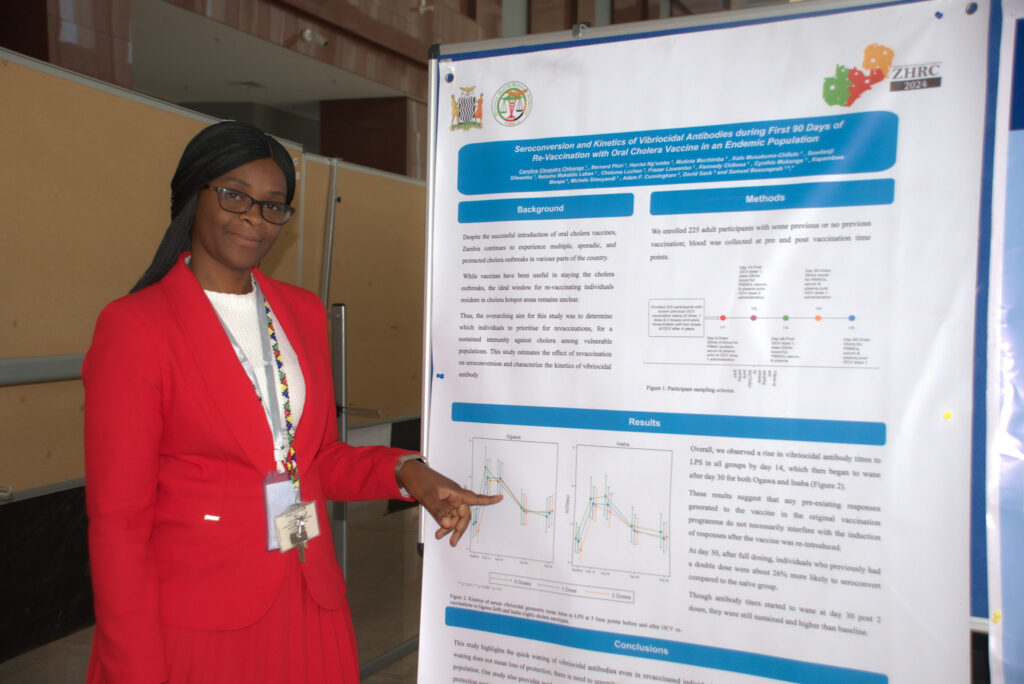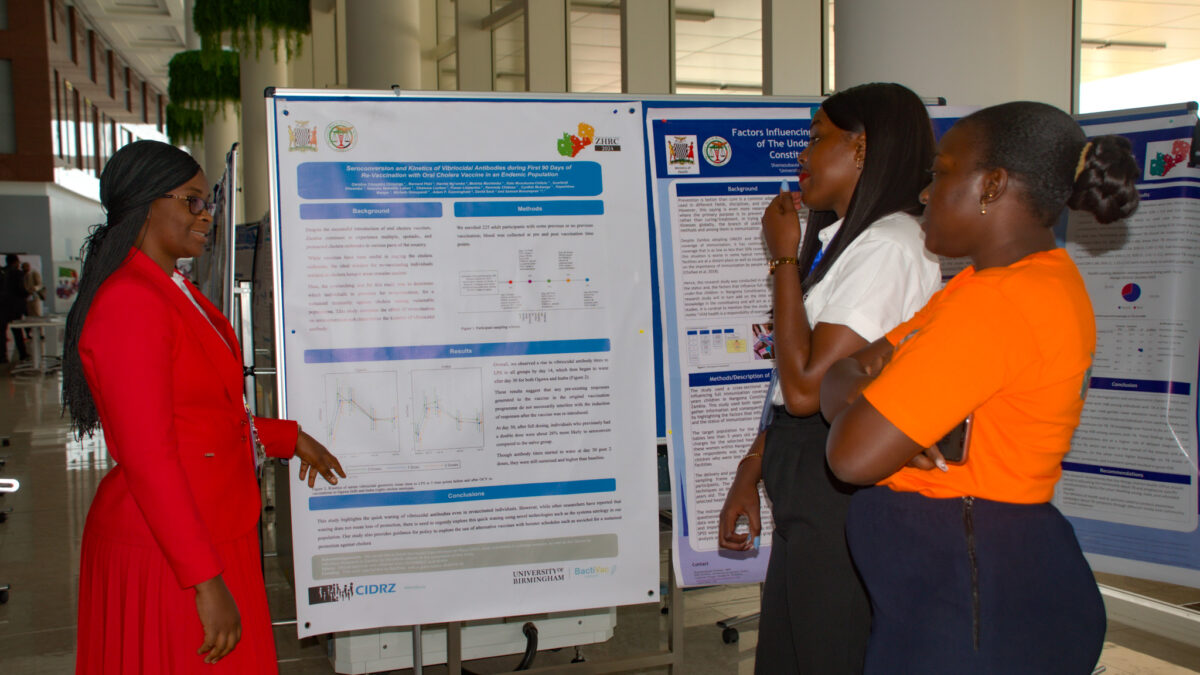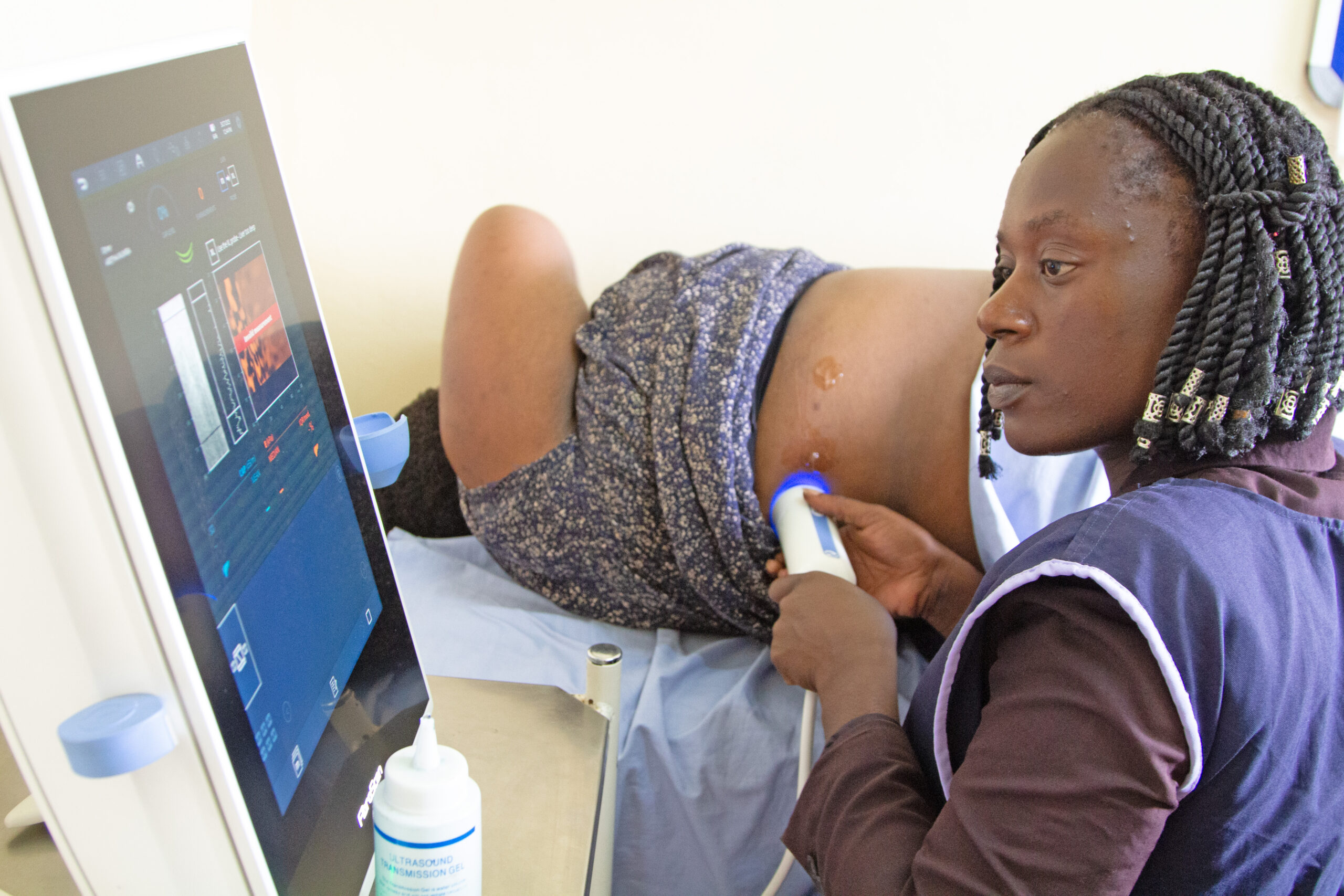
CIDRZ’s Kabwe Mwamba Highlights Role of SKILLZ Girl Programme in Promoting HIV Testing at Zambia Health Research Conference.
October 17, 2024
CIDRZ Study Investigates Changing Of HIV Treatment In Patients With High Viral Loads
October 21, 2024Zambia has faced repeated cholera outbreaks despite successfully introducing the oral cholera vaccine. While the vaccine has effectively controlled outbreaks, it remains unclear when individuals should be re-vaccinated to ensure long-lasting protection in areas where cholera is common.
CIDRZ’s Caroline Cleopatra Chisenga shared findings at the Zambia Health Research Conference that shed light on the effectiveness of re-vaccinating individuals in cholera-prone areas. Her Poster presentation focused on understanding how vibriocidal antibodies—immune responses critical for fighting cholera—change during the first 90 days after re-vaccination with the oral cholera vaccine.
The study aimed to determine which individuals should be prioritised for re-vaccination to maintain immunity.
It Involved 225 adult participants, some of whom had been vaccinated before while others had not. Blood samples were taken before and after re-vaccination to measure changes in antibody levels.
The results showed that vibriocidal antibody levels increased significantly by day 14 in all groups. However, by day 30, the antibody levels began to decrease, although they remained higher than before vaccination. Notably, individuals who had received a double dose of the vaccine in the past were 26% more likely to produce detectable levels of antibodies (seroconversion) compared to those who had never been vaccinated.
The study also found that prior vaccinations did not interfere with the immune response after re-vaccination, meaning that even those who had been vaccinated before could still benefit from receiving another dose. However, the quick decline in antibody levels after day 30 suggests that protection may wane faster than expected, even in those who had been re-vaccinated.
While the decrease in antibodies does not necessarily mean a loss of protection, the study emphasised the need for further research to better understand the long-term immune response in populations at risk of cholera. It recommended exploring new technologies, such as systems serology, to gain deeper insights into how the immune system responds to the vaccine over time.
The study also provides important guidance for health policy, suggesting that alternative cholera vaccines with booster schedules, such as Euvichol, should be considered to ensure sustained protection in cholera-endemic areas. These findings are crucial for shaping future vaccination strategies in Zambia and ensuring that vulnerable populations remain protected against cholera outbreaks.

